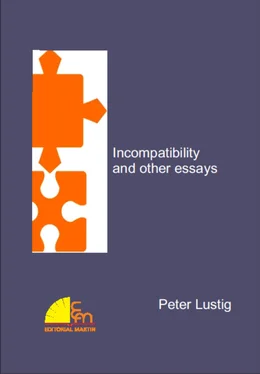An overview of the Continental Congress that met in Philadelphia, in 1776, would show an assembly of land owning, slave driving cotton planters whose main concern was to have control over the source of their wealth. In no way were the lesser folk represented. This needs to be made plain, before the notion of a “liberal democracy” can be linked to universal suffrage.
The term “liberalism”was coined by Adam Smith with reference to a person’s ability to go about managing his life according to his own free will. Hence, this person would be entirely “at liberty” to act always in his best interest. The logic behind the “Invisible Hand” is most revealing, in this respect. Smith must have imagined that thrift and “faith” would overcome any obstacles for somebody equipped with the essentials to make things work, as long as he could act unhindered by the dispossessed underclass, that was supposed to be there to do his bidding out of sheer despondency. Therefore, “labour” was just a commodity priced according to the law of supply and demand, like any other commodity, although it was tied to the elementary ‘needs and wants’ of a numerical majority. This particular instance of philosophic “liberalism” never bothered to make a distinction between surplus goods and surplus people, when supply exceeded demand.
In a society where the economy was driven by slave labour, it may be presumed that a regression to feudalism was the order of the day. In that sense, America was moving in a direction opposite to the course of events that led to the French Revolution. It is sometimes said that the beheading of the king had taken place in England a century earlier and that society had consequently had more time to mature. So the Terror and mob rule could never take place in England, and certainly not in America, where there had not been any royals or nobles, in the first place. The more enlightened version of the events that marked the history of the XVIII century asserts that Revolution actually brought about the empowerment of the bourgeoisie, since the bourgeoisie had filled the space previously occupied by the nobility, prior to its extermination. (Parallel to this interpretation runs the theory that the elimination of the Jews, in Europe, in the XX century, was the logical outcome of the displacement of the bourgeoisie by the proletariat; because the Jews were only a carry over from olden times and they had no role left to play as creditors of their betters in a classless society).
Explanations such as these just mentioned have two things against them: first, their obviousness and second, the sloppiness of slanted generalizations. What does stand them in good stead is that they draw attention to aspects of history that are at variance with the approved official version and so they can lead to further discussion.
“Liberalism” of the variety described by Smith, who transferred his belief in Providence onto the workings of business practice; or Malthus, who feared the revolt of the poor and recommended keeping them hungry and obeisant; or Ricardo, who worried about the rentiers’ unconcern about reinvestment, suggesting that they be subjected to “euthanasia” (presumably by taxing avarice out of existence) and, later, maintaining labour as the independent variable of economic progress, all represent successive stages that hindsight reveals as being worthy of logical redress. Even if “liberalism” should have lapsed from unconformity (in the U.S.) onto conservatism, elsewhere (particularly in the Third World), this only confirms that it was not able to fulfil its promise for a large enough portion of society, because it had strayed from its original purpose, so that its very definition has become incongruous.
Of course, it is far from the aim of this discourse to find fault with the principles of liberalism. Listing its failings should help to overcome them, since they lie principally with the scope and the manner in which they are applied. Everybody knows there cannot be a middle road; as soon as freedom is in the least curtailed, the evils of arbitrariness take over and certain incompatibilities arise when people grow weary of negotiating to no avail, and they end up wanting to fight rather than compromise.
When the terrorist raid against the satirical magazine Charlie Hebdo took place recently, in Paris, the authorities immediately went about putting an end to the affair by shooting the perpetrators on sight. True, public demonstrations- unequalled since the end of World War II -brought about a gathering of government heads and politicians so diverse that the only thing that they can be said to have in common was their support for the “liberal” traditions of Western democracy. All this happened at once. Only afterwards was the decision taken to discuss methods and procedure to prevent a repetition of such things. Though the far right party of the Le Pens was invited to take part in the so called internal debate, they were unwelcome at the international level, where they would appear to represent a discriminatory disposition that might a) be regarded as a provocation and b) place France in an equivocal position with regard to xenophobia.
The massive repulse expressed by three or four million protestors was able to account for a call to take action which, in view of the large number and the ideological divergences of the participating politicians from all over the world, could be expected to resolve itself in an agreement to pursue the matter farther. No instant response or joint undertaking was forthcoming. Still, the security forces took it upon themselves to proceed right away, leaving aside considerations about citizen rights, international charters and all the weighty propositions that have been conceived to protect individuals from the power of the state. The terrorists were not treated like people assisted by human rights. They were wiped out then and there. No attempt was made to disarm them or to arrest them. A few snipers were simply instructed to pick them off. If anything, these terrorists were never going to be given a second chance to do their worst, whatever might be the outcome of imminent discussions on how to make borders safer, or restrict transit within the E.U., or carry out closer control of suspects traveling back and forth from locations outside Europe known to harbour training camps for converts and volunteers. Already, if they only sympathize with extremism, these people are being deprived of their rights as citizens (i.e. their “human rights”) to move about freely. Even before they have the opportunity to do something frightful, they lose their rights.
How can such a situation be reconciled with the “liberal” principles of democracy, unless the authorities take it upon themselves to make certain that misfits who pose a threat to their fellow men, for political reasons, are dealt with like any other sort of criminal caught red handed? One might go a step farther and ask how a liberal democracy, representing multiple opinions, could be made operational if violence were not to be eliminated out of hand, without regard to procedure, even if there seems to be a basic incompatibility between the precepts of democracy and the measures required to give it a chance to work.
The same incompatibility could be transferred, at a stroke of the pen, to the manner in which a pluralist relates to a fundamentalist, only this would apply at an earlier stage, before the situation were about to end in a free for all. There are many precedents, in recent history, in which politicians who were known for their undemocratic convictions switched to populism. Once in power, they claimed they had been legitimized by the vote, as if this were supposed to mean that they had always been in favour of democracy. From the standpoint of this critique, one finds it hard to believe, as well as the notion that a person’s views may change with the passing of time. Such a possibility might stand an intellectual in good stead; but it has no credibility at all in the case of somebody with political ambitions, in spite of which it has become a regular feature of democracy to have these former terrorists, or sympathizers with their cause, play the system to the extent that they can be passed off as “successful” politicians (assuming that whoever has the votes is, for that reason, upholding the best interests of the people). One can only wonder what these politicians might think and do if they did not have the votes or, worse still, if they were prevented from competing, as ex-cons, or even if they had never been sentenced. In the words of the wife of the outgoing president of Uruguay (he served time for active terrorism), if any attempt were made to depose her husband, they were prepared to take to the streets again. She gave this warning as a corollary to his inauguration. Coming from an old woman, it sounds somewhat grotesque; but it must be remembered that she, too, holds (or held) a seat in congress. The democratic system provides generous pensions for former executives and parliamentarians, particularly in countries where democracy is at a premium and it pays to access public office. It may be assumed that someone who had spent almost fifteen years in custody, without a change of heart - in view of what can be construed from the lady’s words -, might easily have done worse!
Читать дальше












